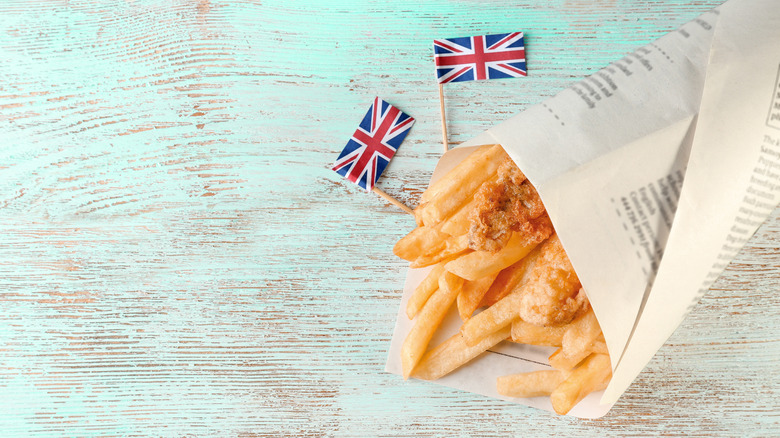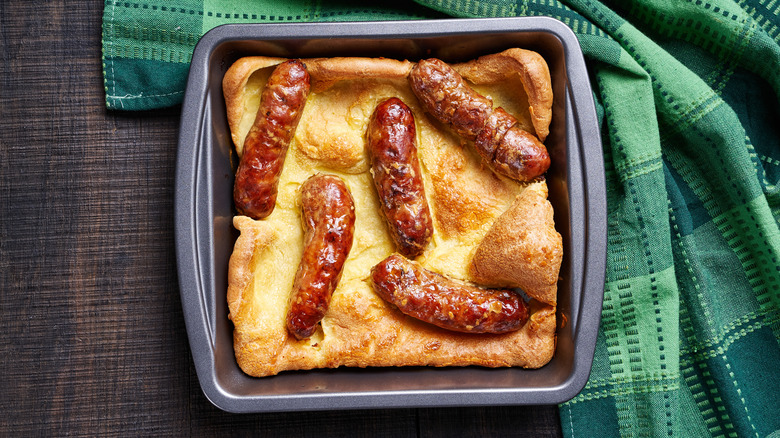The Myth Behind British Cuisine's Bad Reputation
Britain is a country known for its temperate, drizzly climate, enduring monarchy, and momentous London attractions. But, in recent history, their food has not been highly regarded. Other than the occasional chip shop, British food hasn't seemed to make its way around the globe. And with dish names like bubble and squeak, spotted dick, and rumbledethumps, it can raise a few eyebrows.
There are many stereotypes that continue to plague British cooking, such as it's bland in taste and dull — sometimes even questionable — in appearance. While this is widely joked about now, British cuisine did not always succumb to persistent mockery (via News Today).
According to Manchester's Finest, in the medieval period, British cuisine was highly regarded across the globe. Specifically, they were known for their roasted meats. Their roast beef was considered the best cuisine in the world. But it was during the Second World War that Britain lost its crown in the food world.
Demise of the food crown
During the 1940s, Britain was a key player in the Second World War, which was both costly and destructive. The British had to ration food during the war, including sugar and meat, and eating became about survival (via News Today). According to Manchester's Finest, over half of the ingredients available before the war were no longer available. Even after rationing was over, Britain still had heavy restrictions on travel and trade for the next decade.
American soldiers also didn't help Britain's reputation when they arrived on Britain's shores. They expressed disdain for the local cuisines during this time, and the mentality remained popular.
In the 1960s and 1970s, fusion food in the country became all the rage. Manchester's Finest writes, "half-arsed versions of 'world-food' [were] taking [center] stage which did nothing for our culinary reputation." In the following decades, French food became the staple cuisine. It seems Britain had a hard time embracing its culture post-war, and many of its traditions and recipes were left behind in wartime rubble.
While the global attitude remains that British food is lackluster, many chefs are trying to change this. News Today mentions Tommy Banks, a Yorkshire chef who is the youngest in the UK to win a Michelin star. The site quotes him, "[He utilizes] his family's farm to create complex, contemporary dishes that perfectly represent the local area." Time will tell if chefs like Banks can change the global perspective and embrace English food again.

